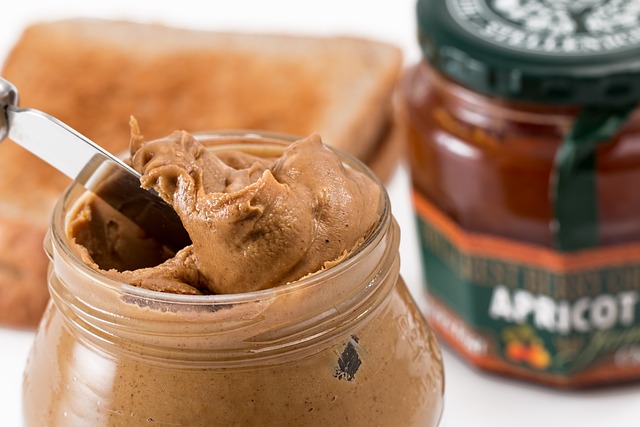If You Want Healthy Kids, Dump the Commercial Peanut Butter
If you are like me, you grew up practically living on peanut butter and jelly sandwiches. The sad truth is that almost all major peanut butter brands are not peanut butter. They sell a peanut butter products. According to experts, these commercial brands are loaded with harmful ingredients, the usual subjects: hydrogenated oil, palm oil, excessive salt, and sugar. From a health perspective, there is no reason to put such ingredients in peanut butter.
Only Buy Peanut Butter with ONE Ingredient: Peanuts
If you want to stay healthy and have healthier kids, go for natural peanut butter, which means look at the label and buy peanut butter that has only peanuts listed on the label. I would also suggest that it’s okay if there are two ingredients, peanuts, and salt; however, if possible, stay clear of salt. I make that suggestion and will note only one major brand, for this reason, cost. Smucker’s Natural Peanut Butter contains only peanuts and “one percent or less of salt.” A sixteen-ounce jar cost under $4.00, usually around $3.50 or so depending on where you live. Other smaller and healthy brands can reach nearly $6.
An example of great natural peanut butter that can be found on Amazon and other major retailers is Crazy Richard’s 100% Peanuts, a women-owned company. That is it, just peanuts. There is no palm oil. It’s gluten-free, has no salt, no added sugar, and, of course, it’s plant-based. Another good option is Trader Joe’s peanut butter which is similar to Smucker’s. There is a Trader Joe’s no-salt peanut butter as well. Trader Joe’s peanut butter is priced very reasonably.
Beware of Peanut Butter Company Manipulation
There are brands out there that promote that their product is healthy. But even these so-called natural brands add palm oil to the peanuts. Palm oil is bad for your heart. The reasons companies put additives into peanut butter come down to money and taste. It’s cheaper to dilute peanuts with palm oil and other fillers. They also want to create an artificial taste that keeps people coming back. I think you will agree that the real taste of actual peanuts is the best.
There is one other reason large commercial brands use hydrogenated oil, to keep the peanut oil from separating. The oil separates from the peanuts naturally. If you look at natural peanut butter, there should be oil sitting at the top. You want this; however, the fake “natural” peanut butter companies that put palm oil in their product will also have this quality, so be sure to read the label and go with a trusted company.
Yes, that means you have to stir the peanut butter. This is why companies use unhealthy and heart-harming hydrogenated oils, to force the oil to bond with the peanuts. It’s convenient. You don’t have to stir but these trans fats and oils can also destroy your arteries and your heart health. Few things are worse for heart health than hydrogenated oil. The cure for this oil separation problem with natural peanut butter? After you stir in once, keep it in the refrigerator.
Remember, Peanuts, that’s it!
Some stores grind their peanuts and make peanut butter. This is also a great option, but make sure you know how much salt they are adding. To elaborate earlier on the health benefits of natural peanut butter. Peanuts can improve heart health because they contain oleic acid, which helps with blood pressure, and good cholesterol levels, and can help maintain good sugar levels in the blood. The Omega-6 found in peanut butter lowers so-called “bad” cholesterol (LDL) and increases HDL, “good” cholesterol. Eating peanut butter can help with weight management because it’s fatty in a good way and contains protein. Peanut butter also has some antioxidants that people need to help reduce the risk of cancer.
The one downside to peanut butter is if you eat too much of it. But that is true with anything. If you eat too many carrots or tangerines, your skin will turn orange. I am not lying. If you don’t believe me, try it, but get your doctor’s blessing first.
Think peanuts; that’s it. Healthier means simpler. If a product has too many ingredients, I’d stay away from it. The exceptions are health professional-recommended protein drinks and power bars. Those, too, should not have excess sugar or fat, but that is for another article.
The opinions and analyses that Earl writes are his own and are not necessarily the positions or views of his employers, the agencies he supports, or that of his colleagues. Reach out with comments or questions.

